|
10/31/2016 Financial Recovery from Abuse: Taking Control of Your Life by Taking Control of Your FinancesBy Christine Murray, See the Triumph Co-Founder
All this month, our focus at See the Triumph for Domestic Violence Awareness Month has been on the financial impacts of intimate partner violence for victims and survivors. As we’ve discussed throughout the month, the financial costs of abuse are often substantial, and these can add a lot of challenges and complexity to the recovery process in the aftermath of an abusive relationship. Whether these financial impacts come in the form of impaired career advancement, legal costs in family court, and/or the costs of physical or mental health care, the toll on survivors can be huge, especially as they work to rebuild their financial lives while also working on their physical and emotional recovery. All of these financial challenges can be overwhelming. However, overcoming them is possible. As we wrap up our Financial Recovery series today, today’s blog post will offer some suggestions for survivors of abuse to use to take control of their finances, and ultimately to take control back over their lives. If you or someone you know is struggling with financial challenges as part of the process of recovering from abuse, consider the following strategies: 1. First, be patient and gentle with yourself. You may feel overwhelmed and afraid by the financial challenges you face. Depending on the extent to which your abuser financially abused you, the financial toll of the abuse may indeed be major. If this feels like an overwhelming issue to address, reassure yourself that recovery will take some time, but it is possible. Consider writing affirming messages to yourself in a place where you’ll look at them often. Whenever you feel overwhelmed, practice self-care and use your coping strategies to manage the stress in healthy ways. 2. Take stock of your overall financial picture and the financial impacts of abuse. Although it may be tempting to put off or avoid looking at your financial situation, you can only begin to plan how to address it once you’ve done a thorough assessment of where your finances stand today. Set aside time when you can spend a few hours to list all of your accounts, assets, debts, potential future expenses, and any other financial details of your life currently. As best you can, try to organize this information without worrying about it. It may help if you think about your financial situation like a business, and you are the manager. Take your time to really understand your financial starting point, so you’ll have a clear picture of where things stand today. 3. Think of one small change you could make in the near future to begin to improve your financial situation. Before you start dreaming big about your financial future, it’s a good idea to set yourself up for some small successes along the way. Once you’ve taken stock of your financial picture, try to identify one small change you could make to begin taking control of your finances. For example, perhaps you have a small debt that you could pay off with your next paycheck. Or, maybe you could start using a written budget to help organize your income and expenses for the month. By starting to focus on small, realistic financial goals that you can accomplish quickly, you’ll begin to notice a change in how you feel when you realize that you can take control of your finances. You may not be able to change everything overnight, but at this stage, it’s more important to simply start building momentum and feeling like you have more control over your finances. 4. Start dreaming big about your financial and career future. Once you’ve started gaining a little momentum for improving your finances, it’s time to step back and think about what your ideal vision for our economic future would look like. Do you have any goals or dreams for your career or education that you had to put on hold due to your abuser’s control of you? If you think of your life when you reach retirement age, what impact would you liked to have made on the world around you? What financial goals do you have for yourself? Perhaps you dream of owning your own home or taking your children on a nice vacation. Give yourself time to think through what you’d like for your future life and career. This may be a very difficult step, especially if your abuser told you things like, “You can’t do anything right,” or “You’ll never be successful.” Acknowledge that these statements have impacted you in the past, but remind yourself that they don’t have to define your future. Trust that you have unique skills, talents, and contributions to offer the world, and allow yourself the time and opportunity to figure out how you’d like to make that impact. 5. Map out a plan to get from your starting point to your vision for your financial and career future. Once you’ve dreamed big about what your life could be, it’s time to start working on a plan to get you from where you are now to where you want your life to go. This stage might involve adjusting your dreams to make them more feasible. For example, in your big dreams, you may have wished you could become a doctor. Although you know you’re smart enough for that path, you may decide that you want to find a career path that will not require as long of a schooling process, so you begin exploring other career paths in the medical field. This stage also should involve doing some research to understand the steps that you’ll need to take as you move toward your career and financial goals. You may find it useful to start using a specific financial planning process, such as the 7 Baby Steps proposed by financial guru, Dave Ramsey. If it’s a career goal you’re exploring, this research might involve talking to professionals already working in that field or learning about relevant educational programs. As much as possible, map out a very specific set of steps you’ll need to take to move toward your financial and career goals. The more concrete steps that you identify, the more you’ll be able to track your progress along the way. 6. Build a strong network of supportive people and resources. You don’t have to go through this journey on your own. Surround yourself with people who you can depend on to encourage and support you along the way. If there are people in your life who can’t or won’t support you in your goals, set boundaries with these people to limit their impact on you. Instead, focus your time and energy on connecting with others who will be there for you and will cheer you on as you reach your goals, and even when you face setbacks along the way. In addition, connect with resources that can help support you in achieving your goals. This could be a career counselor, a financial advisor, a community agency, and credible online resources for financial information. These positive sources of support will be invaluable to you on your journey toward financial recovery. Financial recovery from abuse can be a long, complicated process. In many ways, your financial recovery is closely linked to other aspects of recovery, such as your emotional recovery and your process of reconnecting with a support network. One of the greatest aspects of financial recovery is that it offers tangible opportunities for you to feel success. Other aspects of recovery can feel a lot more fuzzy than financial recovery. It can be harder to track your emotional recovery process than it is to track the numbers involved in your financial recovery process. In that way, financial recovery offers tangible successes that can help to increase your confidence in yourself. Each big and small financial goal you achieve offers you a chance to feel successful and empowered by the control you are taking back from your abuser. By taking control over your finances and believing that you can work toward positive goals for your life and your money, you have the chance to rewrite the script for your future. This process may be difficult, but it is well worth it! 10/27/2016 Rebuilding Your Life After AbuseBy Christine Murray, See the Triumph Co-Founder
You’ve left the abuse behind. You’re determined not to go back. You’ve realized that you deserve more than an unsafe, abusive partner who controls and demeans you. You deserve better--a happy, fulfilling life in which you can make a positive difference in the world. You know, deep down, that great things are in store for you, even if you can’t fully picture what that will look like or how you will get there. You’re ready to step boldly into your new life, free from abuse. But first, there may be some messes that you need to “clean up” in the process of moving on from your abusive partner. Your finances may be limited--or even non-existent. Your abuser may have blocked you from going for your educational or career goals, and you’re frustrated when you think of where you could be or should be if you hadn’t fell prey to that person’s controlling tactics. Today, I want to encourage you. You can do this! You are not alone on the challenges you’ve faced. We’ve heard from hundreds of survivors of abusive relationships through our See the Triumph research program. Time and again, we’ve seen that recovery, accomplishment, and triumph are possible in the aftermath of abuse. It’s true that the path to this new life may be more complicated for you now, but you showed your strength surviving in and leaving the abusive relationship, and that same strength will be your inner guide as you rebuild your life and career after abuse. At See the Triumph, we’ve heard from many survivors that the abuse they experienced left them feeling disappointed by all that their abusers had taken from them, emotionally, financially, and in terms of lost opportunities. As one survivor told us, “I am completely behind the rest of the world because I have had to spend so much time dealing with an abuser.” Rebuilding after abuse may involve starting over completely, from scratch. Safety risks may persist, as abusers can continue to use their abusive tactics even after the relationship ended. As another survivor said, “I had to move twice running from him. People don’t understand how afraid you can be. Others only judge and don’t help. And yet, what we’ve seen in survivors is a fierce determination and tenacity to move forward, by doing whatever it takes. Consider the following quote from a survivor in our research: “I am over $100,000 in debt (living off student loans and credit cards), all while working four jobs and going to grad school to try to get my life back in order.” Although it is unfortunate that this survivor is incurring more debt during the process of rebuilding, we can only stand in awe of her commitment and dedication to bettering her life--working four jobs is no easy feat, and then she added graduate school on top of that. This survivor, like many others we’ve heard from, shows just how determined people can be when they put their mind to it and commit to building a safe, fulfilling life in the aftermath of abuse. In many cases, there are no easy solutions to rebuilding your life following abuse. Of course, there are strategies that can help this process, such as (1) surrounding yourself with as much positive, encouraging social support as you can find, (2) mapping out a vision for what you would like your future life to be like, (3) developing a plan for how to get your life from your starting point now to making that vision a reality, (4) setting meaningful, realistic goals to help you track your progress along the way, and (5) practicing intentional self-care so you can cope with the frustrations and challenges that arise. It may be tempting at times to wish you could simply wave a magic wand to completely erase the past and fast forward to a future time when your life feels more stable and “rebuilt.” At times, it is a good idea to simply notice and appreciate those feelings and allow yourself to feel the emotions that arise with this tempting wish. However, I also encourage you to remember to appreciate the beauty in the struggle of rebuilding your life following abuse. You will find strengths in yourself that you might never have known existed as you face each challenge, one-by-one, and see that you can overcome this. You can leave the past behind, but still benefit from the powerful person it has made you today. You can move forward toward building a life that reflects the unique person that you are and the positive impacts that you can have on the world and people around you. With each challenge you face in the process of rebuilding your life after abuse, rest in the confidence of knowing that this process offers you opportunities to learn about yourself, identify people in your life who are tried-and-true supporters, and tap into the depths of your strength and courage. You are worth it. By Christine Murray, See the Triumph Co-Founder
Abuse is wrong. At See the Triumph, we believe firmly that there is no place for abuse in our society and especially in healthy relationships. We also believe that people who perpetrate abuse should be held fully accountable for their actions and the consequences of them. Unfortunately, however, all too often it is the survivors of the abuse who end up paying the price for their abusers’ actions. Consider the following statements made by participants in our research: “It upsets me that I have to pay for what other people have done to me.” “I have to pay financially, mentally, physically, emotionally, and spiritually for the cruelty of others.” If abuse is wrong in the first place, how much more insult is added to injury when victims and survivors of abuse are forced to pay the extensive costs that often are involved in their recovery process. These costs can come in many forms: counseling and medical bills, legal fees for quality representation in criminal and family court, lost income due to missed work during and after the relationship, and replacing items destroyed or lost in the process of leaving the relationships, to name just a few. In a small number of actual cases, survivors may have access to victim’s compensation funds to help offset some of these costs. However, we’ve heard from many survivors in our See the Triumph research studies that they were left to bear the burden of the financial costs of the abuse on their own. This becomes even more challenging when their abusers had limited their work and educational options as a form of control in the relationship. Together, we must continue to develop solutions to ensure that abusers are held accountable for bearing the full responsibility for their abuse and its consequences, and this includes the financial costs for survivors. When abusers refuse or are unable to pay the price, community resources should do all they can to help support survivors in covering these financial costs and keeping services free or low-cost. Victims do not choose to be abused--their abusers choose to act in violent, abusive ways. Let’s keep working to ensure that victims and survivors do not have to pay the price for the actions of others who have already attempted to hurt them in so many other ways. 10/18/2016 It's Not Just a Hit That They CommitBy Alyssa Triolo and Haleigh Scherma, See the Triumph Guest Bloggers
While there are plenty of instances of domestic violence on the news and in the media, the cases that capture the headlines often don’t reflect many of the realities that victims of abuse face daily. What comes to mind when we say domestic violence or spousal abuse? Black eyes? Bloody lips? Maybe even some bruises? Certainly, these are included in the definition of an abusive relationship and are among the most visible signs of danger, but there are far more examples of abuse that are overlooked, often because they are less visible to the outside world. While statistics differ from study to study, about 25% of women in the United States have experienced domestic physical abuse, but that number is minute compared to the many more that have been victims of emotional and/or financial abuse (FTI Consulting, 2014). Part of the reason these two types of abuse have fallen under the radar is due to how subtle they can be. Emotional abuse is defined as the use of verbal or nonphysical forms of aggression to intimidate, subjugate, and control another human being (Jacobson & Gottman, 1998, p. 148). It can appear in many forms, from name calling to intimidation or even an inconspicuous threatening glare. Part of the reason this type of abuse is so damaging is due to the fact it has long-lasting effects on a victim’s self-esteem. When working with clients who have experienced intimate partner violence, we’ve noticed that they often say the same thing: the physical bruises healed, but the words still hurt. Financial abuse is controlling a person’s ability to acquire, use, and maintain economic resources (Tisdale, 2016). It is extremely common in intimate partner violence relationships, far surpassing the prevalence of physical violence. However, the vast majority of the population, 75%, do not connect financial abuse with intimate partner violence. In fact, nearly 98% of those who have experienced domestic violence have also been victims of financial abuse (Margolis, 2015). Financial abuse fosters dependence on the abuser. Some of the more obvious forms are controlling finances, withholding account information, preventing victims from holding a job or taking away ATM cards, giving their victims an allowance, or even stealing their identities and ruining credit by filing false claims and racking up credit card debt. The effects of financial abuse can be detrimental to the recovery process after leaving the relationship. One study found that, on average, people lose $30,000 from financial abuse, and 10% of victims lost more than $100,000 (Margolis, 2015). Just because emotional and financial abuse can’t be seen overtly does not mean they don’t warrant our attention. Around 58% of Americans believe that the news media and entertainment industry have a responsibility to shed light on domestic violence, yet around 3 in 4 people believe they are not discussing it enough and are inaccurately portraying it (FTI Consulting, 2014). So, what can we do? How can we protect ourselves and our loved ones from abuse like this? How do we help friends and neighbors who are struggling with emotional and/or financial abuse? If you suspect a friend or loved one might be experiencing financial or emotional abuse, there are ways you can help. One of the most important things you can do is be a source of nonjudgmental support for them. It’s okay to express your concern for their safety. However, it’s important to avoid pressuring them to take your help. Remember, they have been coping with this struggle for this long, and they are the expert in their own lives. Asking how you can help is better than taking charge and falling into the same power dynamics of someone else controlling their life. More tips and information can be found through the Allstate Purple Purse Foundation and the National Network to End Domestic Violence. Even if a victim does not feel ready to take action, just knowing that what they are experiencing is abuse can be validating and may plant a seed for change. Alyssa Triolo received her Master’s degree in Counseling with a specialty in Couple and Family Counseling from the University of North Carolina at Greensboro. She has worked for the past year with women who are domestic violence survivors and women who were living in a domestic violence shelter. She is currently pursuing her license as a Professional Counselor with the hope of working with clients on improving their mental health and wellness. Haleigh Scherma is an alumna of The University of North Carolina at Greensboro's Couple and Family Counseling Program where she interned as a sex therapist for couples and individuals struggling with intimacy and relationship issues. Currently, she is employed as a couples counselor, sex and intimacy therapist at Thrive Couples and Family Counseling Services in Denver, CO. References
|
Archives
July 2024
CategoriesAll About Intimate Partner Violence About Intimate Partner Violence Advocacy Ambassadors Children Churches College Campuses Cultural Issues Domestic Violence Awareness Month Financial Recovery How To Help A Friend Human Rights Human-rights Immigrants International Media Overcoming Past Abuse Overcoming-past-abuse Parenting Prevention Resources For Survivors Safe Relationships Following Abuse Schools Selfcare Self-care Sexual Assault Sexuality Social Justice Social-justice Stigma Supporting Survivors Survivor Quotes Survivor-quotes Survivor Stories Teen Dating Violence Trafficking Transformative-approaches |
Search by typing & pressing enter





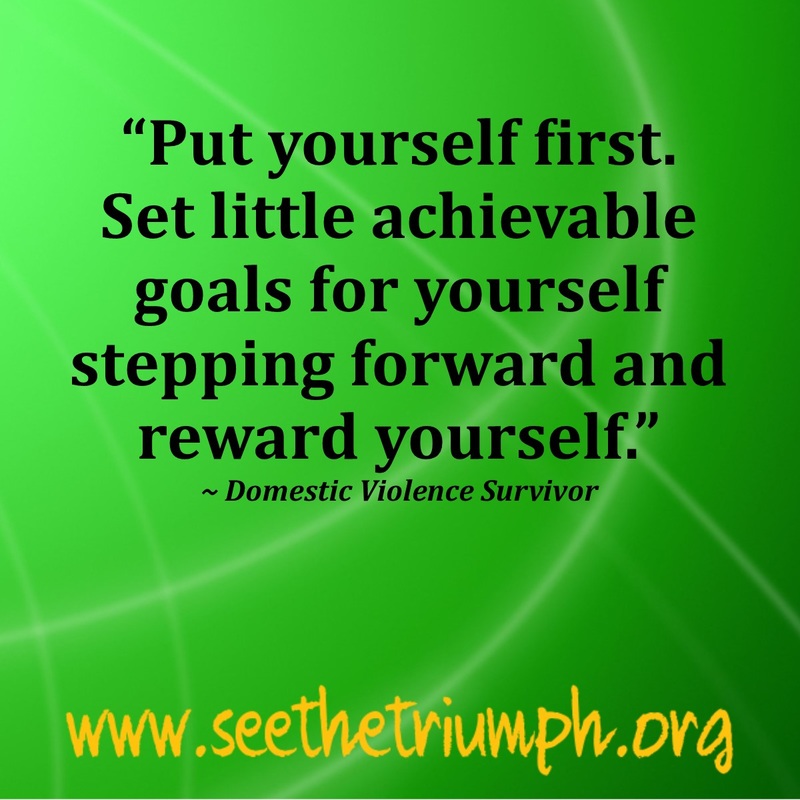
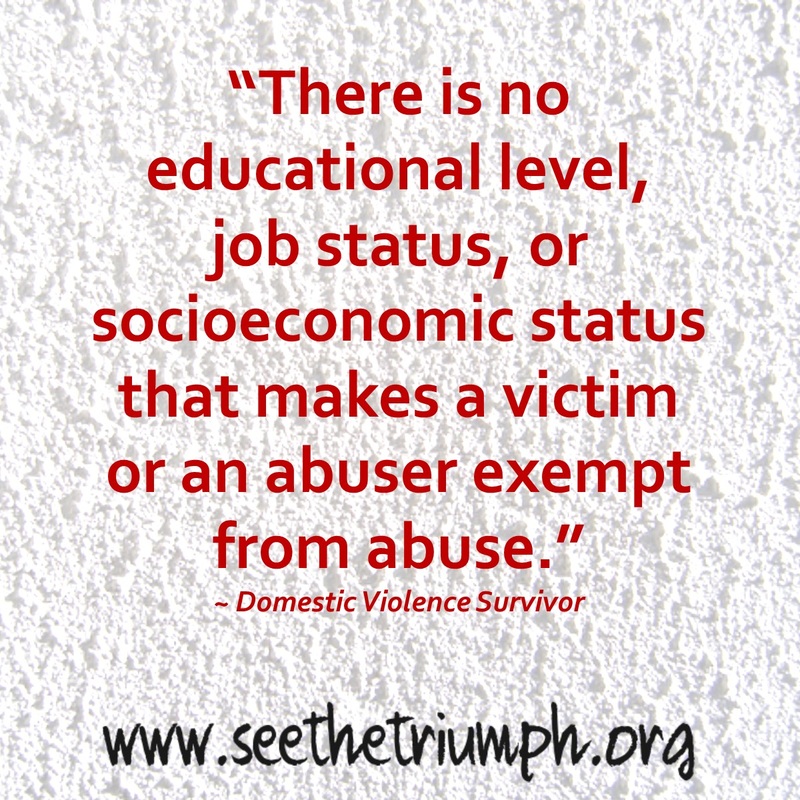
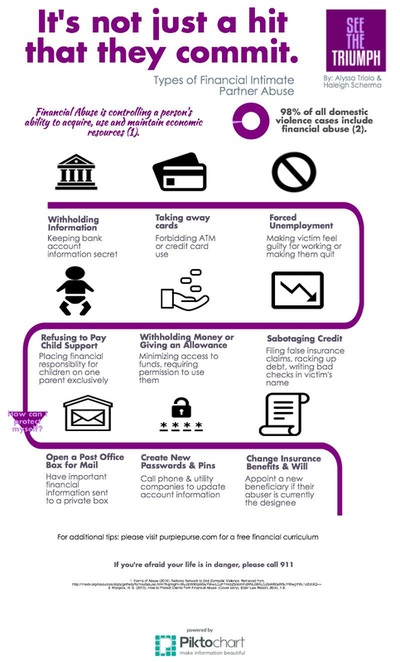
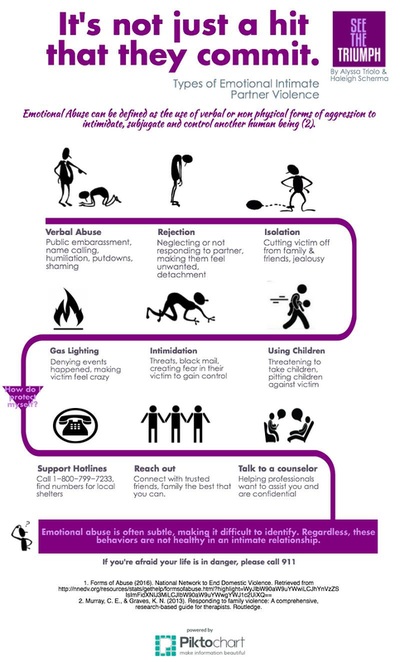
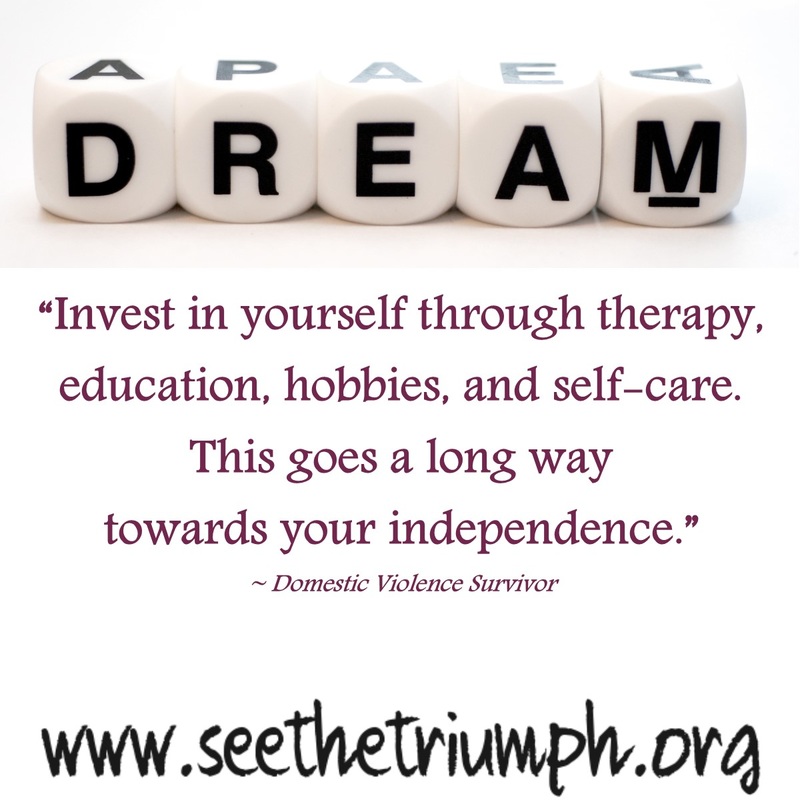
 RSS Feed
RSS Feed